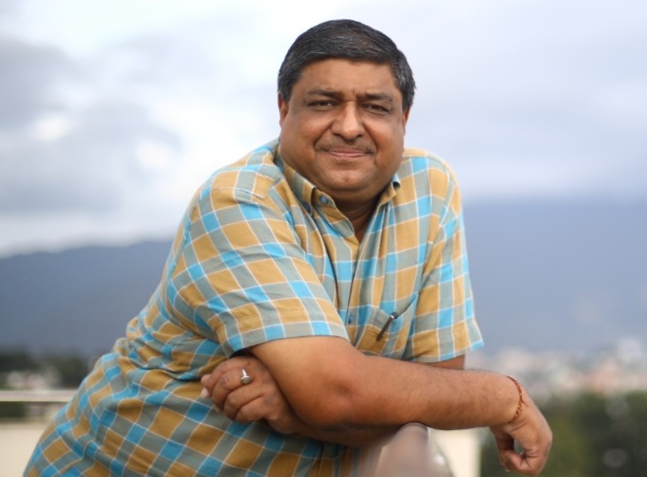Graduated in Computer Science from Ukraine and Belarus
Became the member of first constituent assembly in 2008
Partner to Peter Neil
 I saw the oppression of gay men during my time in Minsk, Belarus, where I was studying for my master’s degree in computer science. The queer bashing, the posters in hospitals telling people to ‘beware of gays’, the police raids and beatings were commonplace. Throughout my stay there, I didn’t have contact with the subterranean gay life that existed there. So it was in Japan where I was first exposed to my own sexuality. I had gone there to work as a volunteer.
What I found changed me irrevocably. For three days I could not sleep, I was deeply scared. In order to reconcile my own view of myself and the world, I talked to a gay book seller and read every useful book I could get my hands on, including works on Hinduism and sexuality.
Next, I went to Hong Kong for further studies at the University of Science and Technology. What I found there confused and disoriented me. Expecting Hong Kong to be a modern society with liberal ways, I was open about my sexual orientation. I was wrong. People there were not comfortable with my openness. I abandoned my studies and returned to Nepal after just six months.
I was less interested in computer studies by that time. I wanted to become a social worker instead. In 1999, I went to Odisha as a volunteer to bring aid to the victims of the super cyclone that killed over 10,000 people. I stayed 10 months there. While I was there, I was also introduced to Buddhism.
Returning to Nepal, and by now certain of the sort of path my life would take, I started to meet other people from LGBTIQA+ community and learned how unpleasant and difficult their lives were. So, I decided to do something about this, and in 2001 formed the Blue Diamond Society, Nepal’s first LGBTIQA+ organization.
Blue Diamond started off with AIDS prevention work, the only way then available to get funding and NGO registration. The organization swiftly moved into monitoring and reporting on human rights abuses. We also instituted a human rights training program. We set up an office in Kathmandu, and quickly spread to other towns and cities.
The activities Blue Diamond was involved in culminated in 2007 in an incredible victory in the Supreme Court, in Sunil Babu Pant and Others vs. Government of Nepal and Others. An interim government was in power, from which I had hoped for much, but it proved uninterested in reforms, so Blue Diamond decided to go to court to fight the discriminatory laws and attitude towards the gay community. We won the landmark case, and, in a wide-ranging decision, the court ruled that the government should recognize the third gender and review and reform all laws that had a discriminatory basis.
The government accepted the ruling and Nepal thus became the first country in the world to recognize a third sex and the first in South Asia to legalize homosexuality. The upshot also included the formation of a seven-member same Sex Marriage Committee. The ruling basically decriminalized homosexuality and allowed study on same-sex marriage in Nepal in 2008. And this decision became a reference for many other countries.
I saw the oppression of gay men during my time in Minsk, Belarus, where I was studying for my master’s degree in computer science. The queer bashing, the posters in hospitals telling people to ‘beware of gays’, the police raids and beatings were commonplace. Throughout my stay there, I didn’t have contact with the subterranean gay life that existed there. So it was in Japan where I was first exposed to my own sexuality. I had gone there to work as a volunteer.
What I found changed me irrevocably. For three days I could not sleep, I was deeply scared. In order to reconcile my own view of myself and the world, I talked to a gay book seller and read every useful book I could get my hands on, including works on Hinduism and sexuality.
Next, I went to Hong Kong for further studies at the University of Science and Technology. What I found there confused and disoriented me. Expecting Hong Kong to be a modern society with liberal ways, I was open about my sexual orientation. I was wrong. People there were not comfortable with my openness. I abandoned my studies and returned to Nepal after just six months.
I was less interested in computer studies by that time. I wanted to become a social worker instead. In 1999, I went to Odisha as a volunteer to bring aid to the victims of the super cyclone that killed over 10,000 people. I stayed 10 months there. While I was there, I was also introduced to Buddhism.
Returning to Nepal, and by now certain of the sort of path my life would take, I started to meet other people from LGBTIQA+ community and learned how unpleasant and difficult their lives were. So, I decided to do something about this, and in 2001 formed the Blue Diamond Society, Nepal’s first LGBTIQA+ organization.
Blue Diamond started off with AIDS prevention work, the only way then available to get funding and NGO registration. The organization swiftly moved into monitoring and reporting on human rights abuses. We also instituted a human rights training program. We set up an office in Kathmandu, and quickly spread to other towns and cities.
The activities Blue Diamond was involved in culminated in 2007 in an incredible victory in the Supreme Court, in Sunil Babu Pant and Others vs. Government of Nepal and Others. An interim government was in power, from which I had hoped for much, but it proved uninterested in reforms, so Blue Diamond decided to go to court to fight the discriminatory laws and attitude towards the gay community. We won the landmark case, and, in a wide-ranging decision, the court ruled that the government should recognize the third gender and review and reform all laws that had a discriminatory basis.
The government accepted the ruling and Nepal thus became the first country in the world to recognize a third sex and the first in South Asia to legalize homosexuality. The upshot also included the formation of a seven-member same Sex Marriage Committee. The ruling basically decriminalized homosexuality and allowed study on same-sex marriage in Nepal in 2008. And this decision became a reference for many other countries.
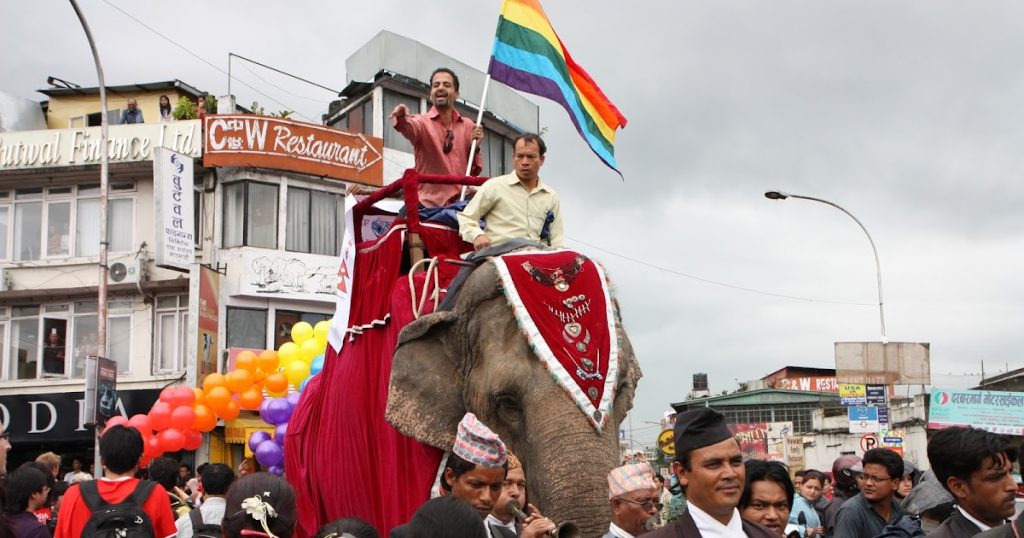 This victory brought me to the attention of Kathmandu’s political world. Always looking for votes in the highly fractious bull pit of Nepal’s politics, a small offshoot communist party, the Communist Party of Nepal (United), invited Blue Diamond to participate in its campaign for the elections for the new Constituent Assembly in 2008.
We asked political parties to put sexual and gender minorities in their manifestos. The Maoist party, which joined the peaceful politics following the 2006 Comprehensive Peace Agreement, was the first to do so.
In the CA election, the CPN (United) won five seats under the proportional representation system, all in the fifteen districts in which Blue Diamond had offices and conducted election campaigns. By the time, we had over 150,000 active members in the organization.
After the election I became the first openly gay parliamentarian in Asia. I took the fight for gay rights directly into the Constituent Assembly, whose task was to draft a new constitution.
I was heavily involved in the drafting of the Fundamental Rights Chapter and secured agreements from all the major parties on the inclusion of provisions to include non-discrimination on grounds of gender and sexual orientation.
Sex, gender and sexuality were not something politely discussed in those days. Despite a very tolerant attitude to the sexual act itself, everyone got married and was expected to produce an heir. There was nothing approaching any recognition of the West’s current rigid differentiations of queer and straight and certainly no identifiable queer lifestyle.
Instead, there was a much more traditional acceptance of a third gender of men who adopted women’s dress and who, in accordance with Hindu tradition, danced and sang at weddings, births and festivals to bring good fortune and to entertain. These could be either castrated hijras, as in India, or uncastrated men from hill tribes, marunis in the hills of the west, notwas among the peoples of the plains, or metis in the hills of eastern Nepal.
Our society’s attitude toward gender and sexuality is gradually changing, but there is still a lot where we could improve on. The important thing is we need to continue this struggle and keep the debate alive.
About him
Madhav Dulal (Friend)
This victory brought me to the attention of Kathmandu’s political world. Always looking for votes in the highly fractious bull pit of Nepal’s politics, a small offshoot communist party, the Communist Party of Nepal (United), invited Blue Diamond to participate in its campaign for the elections for the new Constituent Assembly in 2008.
We asked political parties to put sexual and gender minorities in their manifestos. The Maoist party, which joined the peaceful politics following the 2006 Comprehensive Peace Agreement, was the first to do so.
In the CA election, the CPN (United) won five seats under the proportional representation system, all in the fifteen districts in which Blue Diamond had offices and conducted election campaigns. By the time, we had over 150,000 active members in the organization.
After the election I became the first openly gay parliamentarian in Asia. I took the fight for gay rights directly into the Constituent Assembly, whose task was to draft a new constitution.
I was heavily involved in the drafting of the Fundamental Rights Chapter and secured agreements from all the major parties on the inclusion of provisions to include non-discrimination on grounds of gender and sexual orientation.
Sex, gender and sexuality were not something politely discussed in those days. Despite a very tolerant attitude to the sexual act itself, everyone got married and was expected to produce an heir. There was nothing approaching any recognition of the West’s current rigid differentiations of queer and straight and certainly no identifiable queer lifestyle.
Instead, there was a much more traditional acceptance of a third gender of men who adopted women’s dress and who, in accordance with Hindu tradition, danced and sang at weddings, births and festivals to bring good fortune and to entertain. These could be either castrated hijras, as in India, or uncastrated men from hill tribes, marunis in the hills of the west, notwas among the peoples of the plains, or metis in the hills of eastern Nepal.
Our society’s attitude toward gender and sexuality is gradually changing, but there is still a lot where we could improve on. The important thing is we need to continue this struggle and keep the debate alive.
About him
Madhav Dulal (Friend)
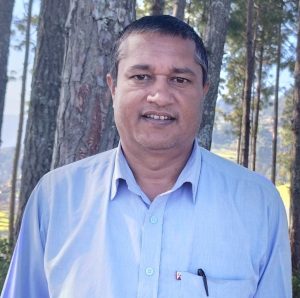 I have known him since he became the member of first Constituent Assembly. He is a guardian for LGBTIQA+ community. Not only that, he is an advocate for human rights and youths. He is a very friendly and approachable individual. I have not seen anyone who could continue his legacy in queer community yet. If he was into politics, he could have achieved much better than what the Rastriya Swatantra Party has done in a short period of time.
Renu Chand (Colleague)
I have known him since he became the member of first Constituent Assembly. He is a guardian for LGBTIQA+ community. Not only that, he is an advocate for human rights and youths. He is a very friendly and approachable individual. I have not seen anyone who could continue his legacy in queer community yet. If he was into politics, he could have achieved much better than what the Rastriya Swatantra Party has done in a short period of time.
Renu Chand (Colleague)
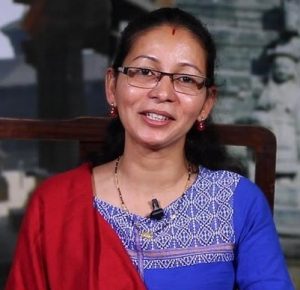 Before Sunil Babu Pant became a member of the first Constituent Assembly, Nepali politicians had no idea about LGBTIQA+ community and their issues. I give him full credit for making the country aware of this issue. After Pant, I have not seen anyone take up the cause with the same zeal. His legacy will live on.
Kiran Thapa (Family member)
Before Sunil Babu Pant became a member of the first Constituent Assembly, Nepali politicians had no idea about LGBTIQA+ community and their issues. I give him full credit for making the country aware of this issue. After Pant, I have not seen anyone take up the cause with the same zeal. His legacy will live on.
Kiran Thapa (Family member)
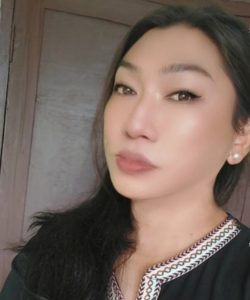 He is a big hearted person. Because of him, we have our own identity of LGBTIQA+ community. All the achievements we got legally, it’s all because of him. We were together in that movement but he was the one to show us the correct path. We can’t forget him, never. Even if we did, our history has his name written on the golden plate.
He is a big hearted person. Because of him, we have our own identity of LGBTIQA+ community. All the achievements we got legally, it’s all because of him. We were together in that movement but he was the one to show us the correct path. We can’t forget him, never. Even if we did, our history has his name written on the golden plate.










